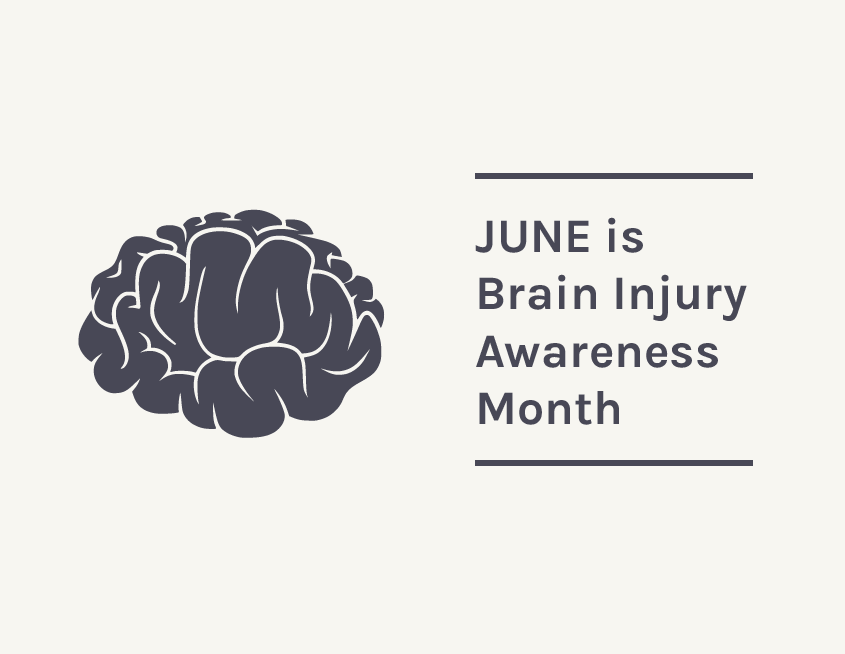June is Brain Injury Awareness Month in Canada. With over 20,000 Canadians being hospitalized each year with an acquired traumatic brain injury (per Government of Canada website) there is a huge need for public education around the prevention and impact of traumatic brain injuries.
Did you know that:
- There are more Canadians living with an acquired brain injury (ABI) than those living with multiple sclerosis, HIV/AIDS, spinal cord injuries and breast cancer combined
- 452 Canadians suffer a serious brain injury every day (1 person every 3 minutes!). This figure does not include mild brain injury statistics
- There are two types of ABIs: non-traumatic and traumatic
- Traumatic brain injuries are caused by forces outside the body (for example motor vehicle accidents, assault, sports injuries) and non-traumatic brain injuries are caused by something that occurs inside the body (such as a stroke, brain tumour or substance abuse)
- Every person will respond differently to an ABI, but common impacts includes physical, cognitive, emotional and behavioural changes
How do you support someone suffering from an ABI?
- Be patient with your loved one. They will likely find the uncertainties of brain injury recovery unsettling and frustrating
- Don’t expect your loved one to be the same person they were before their injury. Recovery will take time.
- Rehabilitation is key for recovery, but should be done under the advice and guidance of qualified medical professionals with support and encouragement from family and friends
- Don’t take it personally if your loved one is rude or abrupt with you. This is a common symptom of someone suffering from an ABI
- Look after yourself so you can look after your loved one
Source: Brain Injury Association of Canada
LifeWorks Total Wellbeing platform is now live. Complete a health assessment, begin a self-paced wellness program, check out supports and resources. Get the help you need, anytime, anywhere.
